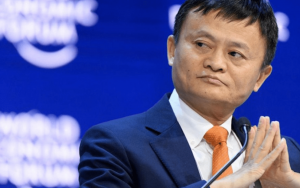(ATF) Officials in China are embarking on big changes to the country’s financial and social system. The most overarching development is the creation of a multi-layered centralised system that will monitor and control urban areas. In the countryside, the commune system will be broken down and rearranged.
The new rules also deal with personal accounts, bankruptcies, delisting, financial services, insurance, disposable wealth, stock trading and other matters.
The measures also change registration documents for residents. In China, people are classified according to occupation, and residential rights are strictly defined between urban and rural areas. This is called the ‘Hukou’ system, in which each person’s Hukou defines the administrative area in which a citizen is registered. With these changes about 100 million more people will be classified as urban residents.
The formal name for this scheme is the “Action Plan for Building a High Standard Market System”, which was issued on Sunday (Jan 31) by the Communist Party’s Central Committee and the State Council.
The plan proposes that, in addition to super-large mega-cities, other metropolitan areas or cities will try to have a household registration system that lists a person’s usual place of residence to guide orderly settlement of the population (instead of their original home town or province).
With these changes, officials hope to Improve a unified national social insurance service and promote a continuation and transfers of social insurance.
They also want to set up a medical security information system. That would mean building a national, multi-level interconnected data sharing and exchange system, with collaboration across different regions, and levels, and departments.
Up to now it has been difficult for China to have effective credit ratings, or due diligence, because the country has operated a disconnected system under which each county, province and region functioned independently. There has never been a central multi-level system.
By way of comparison, in the Soviet Union all orders used to be issued via Moscow. If you wanted pipes from a factory next door in Minsk, you would need to apply to Moscow, where officials would issue the order. In China, the system has always been more fragmented. Beijing was always the ultimate authority, but at provincial level, governments have operated with a large degree of autonomy.
The new system that has been proposed will be the first China-wide centralised mechanism, and it aims to monitor and control urban areas first.
This means more household registration reform. The National Development and Reform Commission recently released data showing that cities with a permanent population of less than 3 million in urban areas have basically lifted restrictions on settlement, and that more than 100 million agricultural migrants have settled in urban areas.
Bankruptcy system to be reformed
The plan puts forward measures to allow a business to shut down – a simplified cancellation procedure for non-listed enterprises and individual industrial and commercial set-ups that have not opened business and have no creditor’s rights and debts.
It will also bring in an online service platform where people can shut down a business and optimize the cancellation process. There will be a simplified trial model for corporate bankruptcy cases, to implement simplified procedures for companies with small assets and limited operating areas. It will also undertake pilot reforms of the personal bankruptcy system.
One reporter noted that Shenzhen will be the first region to adopt a personal bankruptcy system, and regulations covering this will come into effect on March 1, 2021.
Countering monopolies and unfair competition
The plan also aims to oppose monopolies and unfair competition. It has anti-monopoly guidelines and guidelines on how to apply for an exemption in specific areas, as well as guidelines on how businesses can comply with anti-monopoly regulations abroad. The plan seeks to improve legal standards in fintech or internet companies, how to identify a monopoly, and regulations related to data collection and use, plus protecting consumers’ rights.
It aims for a “sharing economy” that has stronger regulations against monopolies and unfair competition in new business areas.
Chinanews.com said: “In the eyes of the outside world, the central government has recently successively introduced anti-monopoly policies and has repeatedly strengthened its stance opposing monopolies, which shows that an era of “strong supervision” has arrived.
Preventing embezzlement and illegal control of collective assets
The plan hopes to improve the system of collective property rights in rural areas. China’s rural commune system is basically an antique set-up from the early days of the revolution (1950s).
The CCP says it will improve and protect the system of collective property rights, and set up and improve the verification and liquidation of collective assets, via reforms of the system of registration, storage, use, disposal and supervision of financial management. New rules will regulate the transfer and transactions of rural property rights, and effectively prevent a small number of people within collective organizations from embezzling and illegally disposing of collective assets. They also aim to prevent “external capital” from embezzling and illegally controlling collective assets.
Reforming the registration system for stock issuance
The plan says China should stick with policy of the science and technology innovation board, highlight the characteristics of “hard technology”, evaluate and improve the registration system, pilot arrangements, and reform the system of stock issuance registration – with information disclosure as the core facet.
It wants to improve the system for protecting investors, by setting up an investor suitability system that matches the risk characteristics of market sectors and products. It also wants to encourage and regulate cash dividends for listed companies.
The government says it will strengthen supervision of the capital market, and enhance the level of transparency and the rule of law.
“Financial reform measures with inadequate supervision cannot be launched rashly. Adhere to zero tolerance for violations of laws and regulations to ensure stable and long-term financial reforms,” the plan says.
Delisting standards
The plan will also establish a normal delisting mechanism. It wants to improve delisting standards, to simplify delisting procedures, and allow firms smooth diversified exit channels. Authorities will strictly implement the delisting system, and severely crack down on those who maliciously circumvent delisting standards.
Overseas visitors VAT return policy
The plan proposes encouraging key cities to set up shops where people can get departure tax rebates. There will also be an increase in the number of duty-free cities and stores on Hainan Island, which is being turned into a kind of tax free playground.
Consumer protection law
To protect consumers, the plan proposes creating a consumer rights protection system. Authorities will formulate regulations for a Consumer Protection Law.
The plan wants to improve the public interest litigation system, and strengthen the judicial protection for consumers in litigation procedures, court trials, and burden of proof. It says it will support consumer associations to exercise public interest litigation rights.
The Party also hopes to simplify procedures for the handling of consumer disputes.
Implement high-level market opening
The plan wants the financial service market to be expanded “in an orderly manner.” Officials will support social capital to enter banking, securities, asset management, bond markets and other financial service industries in accordance with the law.
It will allow foreign-controlled joint-venture banks to be set up, along with securities companies and wholly foreign-owned or joint-venture asset management companies in China.
Market access will be expanded in various areas – medical, education, sports, childcare, environmental protection, municipal administration and other fields. The government says it will reduce restrictions on market access, and remove unreasonable restrictions on for-profit medical and educational institutions in terms of licence processing and equipment purchases.
























